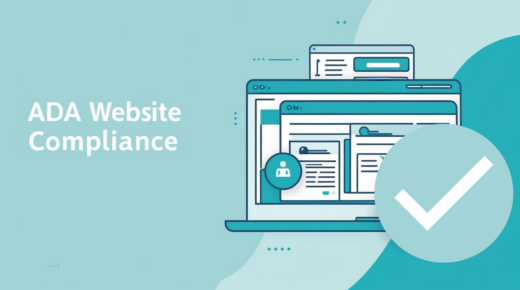What are Local Search Keywords?
Local search keywords are specific keywords or phrases that individuals use when searching for local businesses or services in their area. These keywords typically include location modifiers such as city names, neighborhood names, or zip codes, and are designed to help search engines like Google understand the geographic context of the user’s search intent. With the rise of mobile and voice search, local search has become increasingly important for businesses looking to attract customers in their local area. By targeting the right local search keywords, businesses can increase their online visibility and attract more potential customers who are specifically looking for their products or services in their immediate vicinity. In this article, we will explore how to find the best local search keywords to maximize your business’s online presence and reach a wider local audience.
Why Should You Focus on Local Search Keywords?
Focusing on local search keywords is crucial for businesses looking to target specific geographical locations and potential customers. By incorporating local search keywords into your website content, you can increase the visibility of your business in local search results.
Local keyword research plays a vital role in optimizing web copy and blog posts to align with the search intent of local customers. By understanding the keywords that potential customers in your area are searching for, you can tailor your content to meet their needs and expectations.
Local search keywords ensure that your business appears in relevant searches for your specific location. This not only improves your chances of reaching local customers but also enhances the likelihood of attracting customers who are in close proximity to your business.
In conclusion, focusing on local search keywords can significantly benefit your business by targeting specific geographical locations and potential customers. This increases the visibility of your business in local search results and ensures that you are able to attract customers who are within your local area.
Assessing Your Business Needs
Before you begin your local keyword research, it’s important to assess your specific business needs and goals. Consider the type of business you have and the products or services you offer. Are you a local bakery? A boutique clothing store? A professional services firm? Understanding your business niche and target customer will help you identify the keywords that are most relevant to your specific industry.
Take into account the location of your business and where your customers are primarily based. Are you targeting customers in a particular city, neighborhood, or region? Knowing your target area will allow you to focus your keyword research efforts on those specific locations.
Additionally, consider the different types of keywords that are relevant to your business. Are you looking for general keywords that are related to your industry, or are you interested in specific long-tail keywords that align with the unique offerings of your business? Determining the type of keywords you need will help refine your keyword research strategy.
By assessing your business needs and goals, you can approach your local keyword research with a clear understanding of what you’re looking for and how to best optimize your content for local search.
Analyze Your Target Audience
To effectively find the best local search keywords, it is crucial to analyze your target audience. Understanding their goals, characteristics, and search habits will help you create a keyword strategy that caters to their specific needs.
Firstly, identify who your target audience is. Consider their age, gender, occupation, and interests. Understanding their characteristics will give you insights into what they are searching for and how they search.
Next, determine their goals. What are they looking to achieve when they search for products or services like yours? Do they want to make a purchase, get information, or find a local business? Knowing their goals will help you align your keywords with their intentions.
Consider the location of your target audience. Are they primarily located in a specific area, city, or region? This information will be helpful when incorporating location-based keywords into your strategy.
Lastly, analyze their search habits. When and how do they search? Are they more likely to search on mobile devices, desktops, or voice search? Understanding their search behaviors will enable you to optimize your keywords for the search methods they prefer.
By analyzing your target audience, you can gain valuable insights into who is searching for your products or services, when and how they are searching, and what they currently find in search results. This information will guide your keyword research efforts, helping you find the best local search keywords to reach and engage your target audience effectively.
Identify the Primary Products and Services Offered
To identify the primary products and services offered by your business, start by conducting thorough research on competitor websites and incorporating relevant information garnered from your own research. This will allow you to gain valuable insights into the commonly searched services that accurately represent your business.
In the case of an injury law firm, for example, primary products and services might include assistance with personal injury cases, such as car accidents, slips and falls, medical malpractice, and workplace accidents. Therefore, including keywords such as “injury lawyer” and “car accident lawyer” in your content will help target individuals searching for these specific legal services.
Additionally, it is important to consider incorporating location-based keywords, such as “New York,” if your business operates in a specific region, city, or area. This will help capture potential customers who are searching for legal assistance in that particular location.
By strategically optimizing your content with target keywords and relevant location modifiers, you can increase the visibility of your business in search engine results and attract more organic traffic. Remember to consider the search intent of your target customers and craft content that is tailored to their needs and interests. This will ensure that your business is attracting the right kind of traffic and potential clients.
In conclusion, identifying the primary products and services offered by your business requires thorough research and an understanding of what potential customers are searching for. By incorporating target keywords, relevant location modifiers, and understanding the search habits of your target audience, you can effectively optimize your content and attract more potential customers.
Identify Your Physical Location and Catchment Area
Identifying your business’s physical location and catchment area is crucial when it comes to local search marketing. Your physical location refers to the address where your business is situated, while the catchment area refers to the geographic region from which you can draw potential customers.
Understanding your physical location and catchment area is essential because it directly impacts your target audience and marketing efforts. For instance, if your business is located in a bustling city center or near well-known landmarks, you have the advantage of attracting foot traffic and potential customers who frequent those areas. On the other hand, if your business is tucked away in a less busy neighborhood, you may need to invest more in online visibility and reaching out to customers in nearby areas.
By identifying your physical location and catchment area, you can tailor your local search marketing strategies accordingly. This includes incorporating location-specific keywords into your website content, online directories, and business listings. For example, if your business is near a popular landmark, including its name in your keywords can help attract customers searching for businesses in that specific area.
In conclusion, identifying your physical location and catchment area allows you to optimize your local search marketing efforts by focusing on the right target audience, using location-specific keywords, and leveraging nearby landmarks or transportation hubs to attract potential customers.
Researching Relevant Keywords
To effectively optimize your website for local search, you need to identify and target the most relevant keywords for your business. This involves conducting thorough keyword research to understand the search terms potential customers are using to find businesses like yours in your local area. There are several keyword research tools available that can help you in this process. One popular tool is the Google Keyword Planner, which provides data on search volume and keyword variations. Additionally, Google Trends can help you identify trending keywords and phrases people are searching for in your area.
When conducting keyword research, it’s important to consider the search intent of your target customers. What specifically are they looking for? Are they seeking a specific product or service? Understanding the search intent will enable you to create relevant content that matches their needs.
Furthermore, it’s essential to analyze the competition and keyword difficulty levels in your industry. By understanding which keywords your competitors are targeting and their rankings, you can refine your own SEO strategy to gain a competitive advantage. Additionally, using location modifiers in your keywords, such as your city or neighborhood, can help attract more local traffic.
Overall, by investing time and effort into researching relevant keywords for your local area, you can improve your organic search rankings, drive targeted traffic to your website, and ultimately increase your chances of attracting and converting potential customers.
Use Targeted Search Terms
To effectively optimize your web page for local SEO, it is crucial to use targeted search terms that are relevant to your business and location. These search terms, also known as keywords, will help search engines understand the content and purpose of your web page, making it more likely to appear in local search results.
When choosing targeted search terms, it is important to consider the specific products or services your business offers and the needs of your target customers. Think about the search terms potential customers would use to find businesses like yours in your local area. For example, if you are a bakery in New York City, relevant search terms could include “best cupcakes in NYC” or “bakery near Times Square.”
Once you have identified your targeted search terms, it is crucial to optimize your web page’s content by incorporating these keywords naturally throughout the page. This means using the keywords in the page’s title, headings, and within the body of the text. However, it is essential to avoid keyword stuffing – the practice of excessively and unnaturally inserting keywords into the content. This can lead to penalties from search engines and may negatively impact your website’s ranking.
By strategically using relevant keywords throughout your web page and avoiding keyword stuffing, you can improve its visibility in local search results and attract more targeted traffic to your website.
Utilize SEO Keyword Research Tools
Utilize SEO Keyword Research Tools to Find Local Search Keywords
When it comes to finding the best local search keywords, utilizing SEO keyword research tools can significantly enhance your keyword research strategy and help you target and attract the right audience. These tools provide valuable insights into the specific keywords people are using to search for businesses in your local area, allowing you to optimize your website and content accordingly.
One popular keyword research tool is Ubersuggest. It provides comprehensive data on search volume, keyword difficulty, and even keyword variations, helping you identify the most relevant local search keywords for your business. Another effective tool is Google Keyword Planner, which offers valuable information on the search volume and competition for specific keywords. This tool allows you to refine your keyword list and choose the most effective ones.
Moz Local is another powerful tool that helps you optimize your business listing for local search. It provides accurate information on your business’s online reviews, ranking, and visibility, allowing you to make data-driven decisions about your SEO strategy. Lastly, SERPStat is a versatile tool that provides insights into keyword rankings, keyword difficulty levels, and search intent, enabling you to discover highly relevant local search keywords for your business.
Using these SEO keyword research tools is essential because they provide accurate and up-to-date data on search volume, competition, and user intent. By leveraging these tools, you can make informed decisions about the keywords to target, ensuring that your website and content are optimized for maximum visibility in local search results.
In conclusion, to find the best local search keywords, it is crucial to utilize SEO keyword research tools such as Ubersuggest, Google Keyword Planner, Moz Local, and SERPStat. These tools provide valuable insights and data that can help you optimize your web page’s content and attract more targeted traffic to your website.
Generate a List of Relevant Keywords
To generate a list of relevant keywords for local search, follow these simple steps:
1. Start by entering your primary services or products as keywords into keyword research tools such as Google Keyword Planner or Scalenut. These tools will provide you with a range of keyword suggestions based on search volume and competition.
2. Analyze the keyword suggestions provided by the tools and focus on selecting keywords with high search volume and low competition. These keywords indicate a high potential for attracting organic traffic to your website.
3. Consider incorporating long-tail keywords into your list. Long-tail keywords are more specific phrases that target a particular audience. They tend to have lower competition and higher conversion rates compared to broader keywords. For example, instead of just using “plumber,” consider using “emergency plumber in [your city].”
4. Utilize industry-specific terms and jargon in your keyword research. This helps to refine your list and attract a more targeted audience who are more likely to convert into customers.
When conducting local keyword research, focus on including keywords related to your physical location or area of service. For example, “best coffee shop in [your city]” or “affordable hair salon near me.” These location-based keywords will help your business rank higher in local search results.
By following these steps, you can generate a comprehensive list of relevant keywords for local search that will greatly enhance your SEO efforts and drive more targeted traffic to your website.
Consider Word Variations and Synonyms
When it comes to optimizing your content for search engines, it’s important to consider word variations and synonyms related to your targeted keywords. By including these variations in your content, you can optimize it for a wider range of search queries and capture a larger audience.
Start by identifying your targeted keywords. These are the main terms that you want to rank for in search engine results. Once you have your targeted keywords, think about different ways people might search for the same thing. These can include word variations, such as plurals or different verb tenses, as well as synonyms.
By incorporating these word variations and synonyms into your content, you can increase the chances of your website appearing in search results for a variety of search queries. This can help attract more organic traffic to your site and potentially lead to more conversions.
When optimizing your content, make sure to use these word variations and synonyms naturally within your writing. Avoid keyword stuffing, which can result in penalties from search engines and negatively impact your rankings.
By considering word variations and synonyms, you can optimize your content for a wider range of search queries and improve your chances of attracting more organic traffic to your website.
Analyze the Competition’s SEO Efforts
To analyze the competition’s SEO efforts, start by conducting a thorough research on their website’s content, keyword usage, and backlink profile. This will give you valuable insights into their strategy and help you identify areas where you can improve.
Utilize tools like Ubersuggest and Surfer SEO to analyze their SEO metrics. These tools can provide information on search volume, keyword difficulty, and relevance, which will give you a clear understanding of the keywords they are targeting and how successful they are with their SEO efforts.
Look for patterns in their keyword usage. Are there specific keywords that they consistently target? Are there any keywords they might be neglecting? By identifying these patterns, you can gain a better understanding of their strategy and potentially identify gaps that you can fill with your own SEO efforts.
Additionally, analyze their backlink profile. Look at the websites and sources that are linking to their content. This will give you an idea of the quality and quantity of their backlinks, which is an important factor in SEO rankings.
By analyzing the competition’s SEO efforts, you can gain valuable insights that will help you optimize your own strategy. Keep in mind that this analysis should only serve as a starting point, and you should always aim to create unique and high-quality content that will resonate with your target audience.
Check for Current Ranking of Your Targeted Keywords
To check the current ranking of your targeted keywords, you can follow these simple steps:
1. Utilize tools like Google Search Console’s Search Performance Report and AHREFs tracking tools. These tools provide valuable data on your website’s performance, including organic traffic, keyword ranking, and average position. By monitoring these metrics, you can gauge how well your targeted keywords are performing and see if any adjustments need to be made.
2. Research top-ranking pages from local businesses in Google. Take note of the URLs of these pages and plug them into a tool like AHREFs’ Site Explorer. Filter the results to show the top 10 rankings for each URL. This will give you insights into the keywords these pages are targeting and ranking for. You can use these findings to identify keywords that are relevant to your own business and incorporate them into your content strategy.
3. Regularly track your keyword rankings using Google Search Console and AHREFs. By consistently monitoring your keyword performance, you can identify any fluctuations or changes in ranking positions. This allows you to stay proactive in your SEO efforts and make necessary adjustments to improve your keyword rankings.
By following these steps and utilizing tools like Google Search Console and AHREFs, you can effectively check the current ranking of your targeted keywords and make data-driven decisions to optimize your SEO strategy.
Developing an Effective SEO Strategy
An effective SEO strategy is crucial for businesses aiming to improve their online presence and attract more customers. By utilizing the right keywords, businesses can optimize their website and increase their chances of being found in local search results. To develop an effective SEO strategy, it is important to conduct thorough keyword research and identify the most relevant and high-performing keywords for your business. This will involve utilizing tools like Google Search Console’s Search Performance Report and AHREFs tracking tools to monitor keyword rankings, organic traffic, and average position. Additionally, researching top-ranking pages from local businesses in Google can provide valuable insights into the keywords that are driving their success. Regularly tracking keyword rankings allows businesses to stay proactive in their SEO efforts and make necessary adjustments to improve rankings. By developing and implementing a well-defined SEO strategy, businesses can increase their visibility, attract more potential customers, and ultimately achieve their online marketing goals.
Identify Primary, Secondary, and Tertiary Keywords
Identifying primary, secondary, and tertiary keywords is crucial when developing an effective SEO strategy for local search. Primary keywords are the main focus of your website’s content and should reflect the core offering of your business. These keywords are highly competitive and have a high search volume, making them essential for attracting potential customers.
Secondary keywords support the primary ones by providing additional context and expanding the scope of your content. They have a moderate search volume and help capture users who are searching for related terms or have specific intent. Including secondary keywords helps improve the relevance of your website content and increases your chances of ranking for various search terms.
Tertiary keywords are more specific and long-tail in nature. They target niche audiences and cater to specific search intents. While the search volume for tertiary keywords may be lower, they often yield higher conversion rates since they attract users with a clear intention. Incorporating tertiary keywords allows you to target a broader range of potential customers and provides opportunities to rank for less competitive terms.
Analyzing the SEO efforts of your competitors can provide invaluable insights for selecting keywords. By understanding which keywords they are targeting, you can identify gaps or opportunities for your own website. Look for keywords with a decent search volume but less competition, as this allows you to stand out in the local search results.
In conclusion, identifying primary, secondary, and tertiary keywords is vital for developing a comprehensive SEO strategy for local search. By targeting different keyword categories, you can optimize your website’s content to match specific search intents and improve its relevance. Analyzing your competitors’ SEO efforts will further inform your keyword selection and help you gain an edge in the local search market.
Get Local Search Keyword Recommendations From All Things Digital
In today’s digital age, local businesses rely heavily on online visibility to attract customers. One key strategy for boosting online presence is through local search keywords. By incorporating relevant keywords into your website content, you can increase your chances of appearing in local search results. To effectively find the best local search keywords, it is crucial to consider factors such as search volume, potential customers, and keyword research tools. In this article, we will explore the steps you can take to discover the most effective keywords for your local business, using insights from All Things Digital. By following these recommendations, you can optimize your website for local searches and improve your chances of attracting local customers who are actively searching for your products or services. So, let’s dive in and learn how to maximize your local search keyword strategy.
Contact Us Today For A Proposal
If you’re searching for the best local search keywords for your business, look no further than All Things Digital, a New York-based company specializing in SEO services. All Things Digital understands the importance of targeting relevant keywords to boost your online presence and attract potential customers in your area.
To receive a proposal for their local search keyword services, simply contact All Things Digital through their website. They have a user-friendly contact form where you can provide your information and specific requirements. Alternatively, you can reach out to them through phone or email.
There are many benefits to working with All Things Digital. They have consistently received 5-star reviews from satisfied clients, highlighting their expertise in keyword research and effective SEO strategies. By partnering with them, you can expect increased organic traffic, improved search engine rankings, and ultimately, more customers.
Don’t miss out on the opportunity to optimize your online presence with the best local search keywords. Contact All Things Digital today for a proposal tailored to your business’s needs. Visit their website or use their preferred communication method to get started on enhancing your search engine visibility and driving more relevant traffic to your website.





